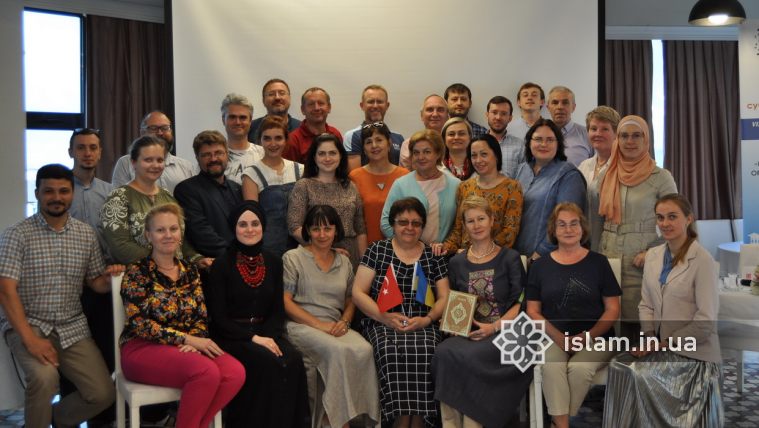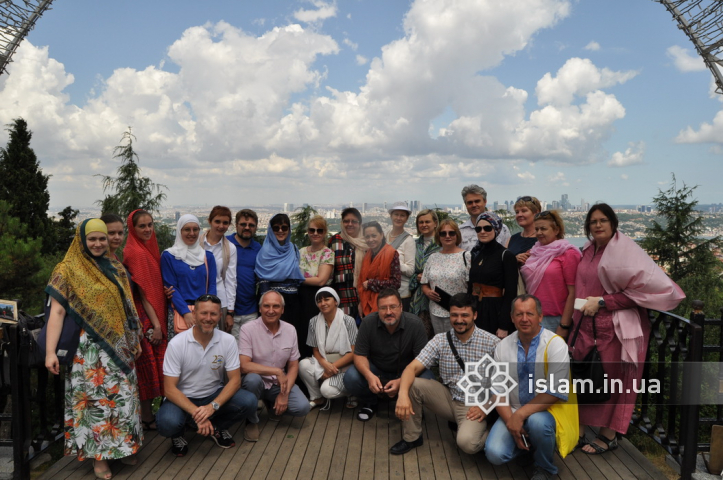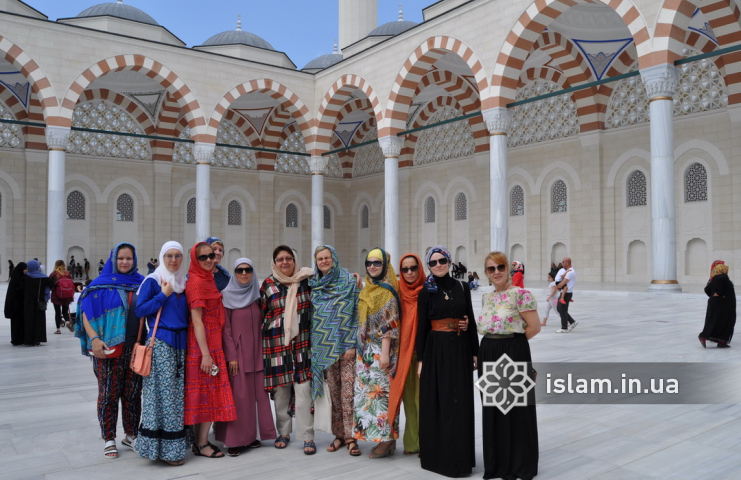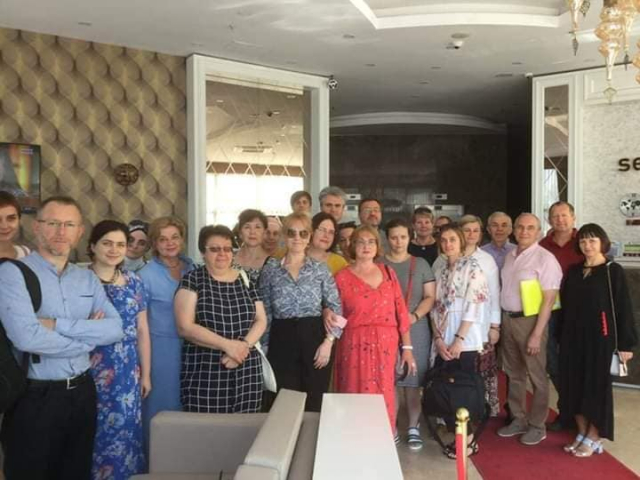On 7 July, VIII International Summer School of Islamic Studies got off the ground in Istanbul (Turkey). This year, Ukrainian Centre for Islamic Studies holds the event along with Centre for Islamic Studies of the National University Ostroh Academy and Turkish educational fund Sinan Pașa Medesesi.
Professor Liudmyla Fylypovych noted that she had been planning to make a presentation as well, but in the course of the discussions she had to drastically revise her views. She thanked the receiving party for their hospitality, and thanked Sheikh Said Ismagilov for consistently holding the School for eight years in a row. She never failed to mention the participants, who, according to her, were responsible for at least half of the event’s success:
— I thank you all with my wole heart, for we had a serious expert discussion, and I personally gained a lot from it.
This year’s School gathered a power team of researchers. According to the calculations offered by Mufti of RAMU “Umma” Sheikh Said Ismagilov in his greeting speech, there were “10 Doctor Habilitatus (including 3 Professors), 12 PhDs, 7 MSs, 3 jurnalists, 1 Mufti and even 1 parliamentory candidate. There were specialists from different spheres, from Liberal Sciences to Physics”. Three countries were represented, including Turkey, Ukraine (Kyiv, Lviv, Odesa, Chernivtsi, Ternopil, Ostroh, Kamianske, Villlytsia, Irpin) and Poland.
Mr.Cefer Bayraktar from the Turkish side also highly estimated the level of the School and said he was hoping for further fruitful cooperation, in particular, on the field of publishing and distribution of Islamic literature in Ukrainian, and in educational work with both the students in the field of religious studies and everyone willing. He expressed hope that the students of Sinan Pașa Medesesi would be able to come to Ukrainian Universities and observe the ukrainian scientific life.
Sheiks Said Ismagilov, when summing up the event, noted that he liked the VIII School because the participants produced specific solutions and proposals, like translating the textbook on the basics of Islam presented at the School to Ukrainian, develop a course of Islamic studies as a separate academic subject, and expand the experience of running cabinets of history of religions in Ukraininan Universities. He also encouraged the participants (some of whom represented a number of Ukrainian Universities) to make the most of Sinan Pașa Medesesi’s generous proposal to provide them with free literature and free lectures, and establish fruitful partnership with the historical complex.
The Mufti said he would like the next School to be held in a region as interesting as Istanbul, for it was very important that the programme included not just scientific discussions but also the experience of being in a place where Islam flourished for centuries and deveoping personal connections with the subject. He added that he personally was open for further cooperation with the Ukrainian Universities and be a guest lecturer on Islam in terms of the Religious studies academic course.
The School consisted of four days of research and discussions, and two days of getting an insight of Istanbul, the city that for centuries had been the heart of the whole Muslim world. They visited both the historical part of the city on the European side of the Bosporus, and on the Asian side where they attended Friday prayer in the new largest mosque Büyük Çamlıca Camii able to accommodate a whopping 63,000 people at a time. Non-Muslim researchers had a first-hand observation experience of religious life of Muslims, in particular, of their muslim colleagues. They also had a brief introduction in Turkish Muslims’ everyday life, for the generous hosts opened both their hearts and their homes to their Ukrainian guests.





